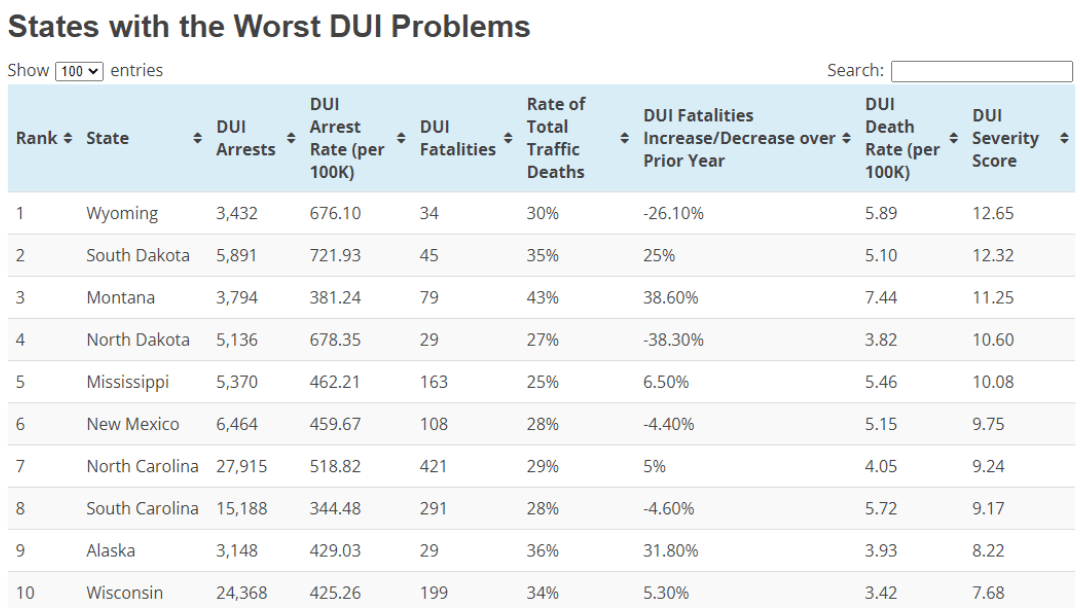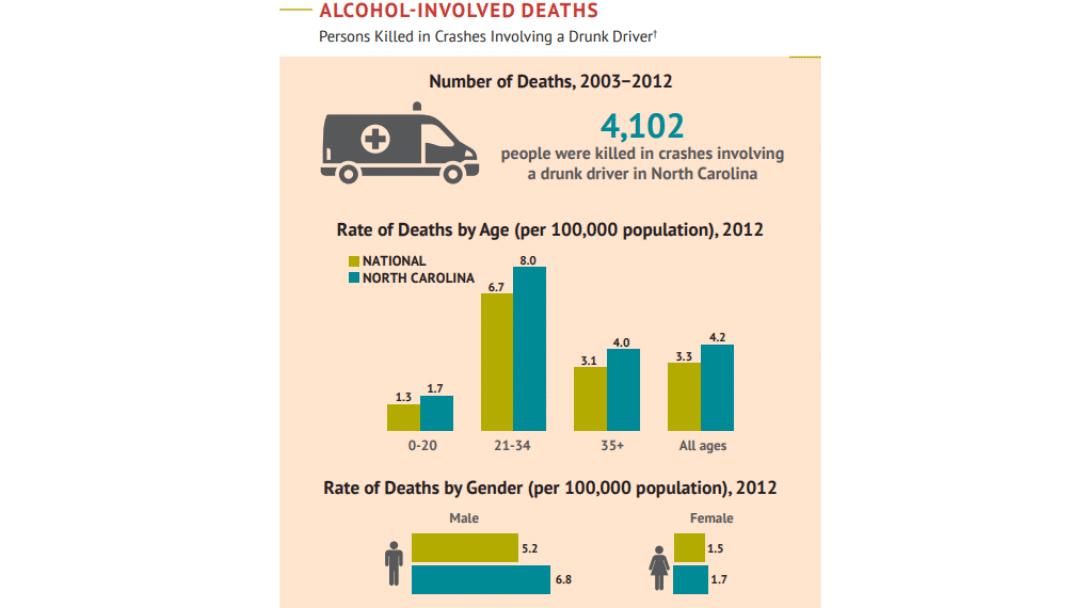In North Carolina, it is against the law to operate a vehicle if you are impaired due to the use of drugs or alcohol. Doing so and getting caught can set you up for what is called a DWI, or driving while impaired charge.
Getting a DWI is very serious and could cause many problems for those who are convicted, such as jail time, fines, and the loss of your driver’s license. That’s why it’s crucial to understand what the law in North Carolina says about driving under the influence.
This post will tell you everything that you need to know.
DUI vs DWI: What’s the Difference?
You’ve probably heard people talking about both DUIs and DWIs. Often, these two offenses are used interchangeably in popular culture and media. So, what’s the difference? Do you need to worry about one more than the other?
DUI stands for driving under the influence, while DWI stands for driving while impaired. If these two things sound very similar to you, then you’re right – they are. Some states use the term DUI to refer to intoxicated driving charges. Still, other states make them two distinctive charges.
Our state labels all of these charges DWIs. So, no matter what the law enforcement officer who pulls you over thinks you’re under the influence of if a charge results it will be a DWI.
How Rampant Is Intoxicated Driving in North Carolina?
Backgroundchecks.org put together a list of the states with the worst drunk driving problem based on 2018 data — North Carolina ranked #7.
Best and Worst States for Drunk Driving Source: Backgroundcheck.org 2018
That is, to put it mildly, not good. We have a culture of drinking and driving, and it causes numerous problems in our state — most notably in alcohol-involved driving deaths:
Sobering Facts: Drunk Driving in North Carolina Source: Centers for Disease Control and Prevention 12/2014
As you can see, in every area, North Carolina is above the national average.
Perhaps because of these exorbitant numbers, state laws are designed to severely punish anyone convicted — and in many ways make life complicated even for those who are merely charged.
Surviving this onslaught requires you to have a clear understanding of the law, and to work with someone who knows how to use it to give you the best chance of a positive outcome.
When Can You Be Charged with a DWI in North Carolina?
In North Carolina, you cannot operate a motor vehicle in any public place or on the highway under these circumstances:
- You are under the influence of a substance that impairs your driving ability
- You have a blood alcohol content of 0.08 percent or higher (those with commercial licenses cannot exceed 0.04 percent)
- You have a Schedule I substance, such as opiates, in your system
- You are considered under the influence in our state if whatever substance that has been ingested has caused significant impairment of the faculties required to operate a vehicle safely
It’s also important to note that in our state, you only need to have “actual physical control” of a vehicle to be considered in the operation of it.
That means that there may be circumstances under which you may not be actually driving a vehicle but still be considered in control of one. If this is the case and you are intoxicated, it can lead to a DWI charge.
For example, you might think you’re doing the smart, responsible thing by going to your car to sleep it off after a night of drinking. However, if you do so in such a way that you can be considered to have “actual physical control” of the vehicle, a charge isn’t out of the question.
Implied Consent in North Carolina
When you are approached by a police officer who suspects that you are driving while impaired, you will be asked to submit to a urine, breath, or blood test in order to determine if you are, in fact, impaired.
Some people wonder if they can refuse to submit to these tests. The answer is both yes and no.
When the officer pulls you over, they may ask you to take a portable breath test (PBT) at the scene. You are not legally required to do this, and you will face no consequences for doing so.
However, simply refusing the test will not prevent the officer from arresting you, and once you are at the police station, the police have access to more accurate tests that you cannot legally refuse — at least, not without facing penalties.
This is due to North Carolina’s implied consent laws, which say all drivers agree to submit to a test to determine if they have drugs or alcohol in their system simply by driving on our roads.
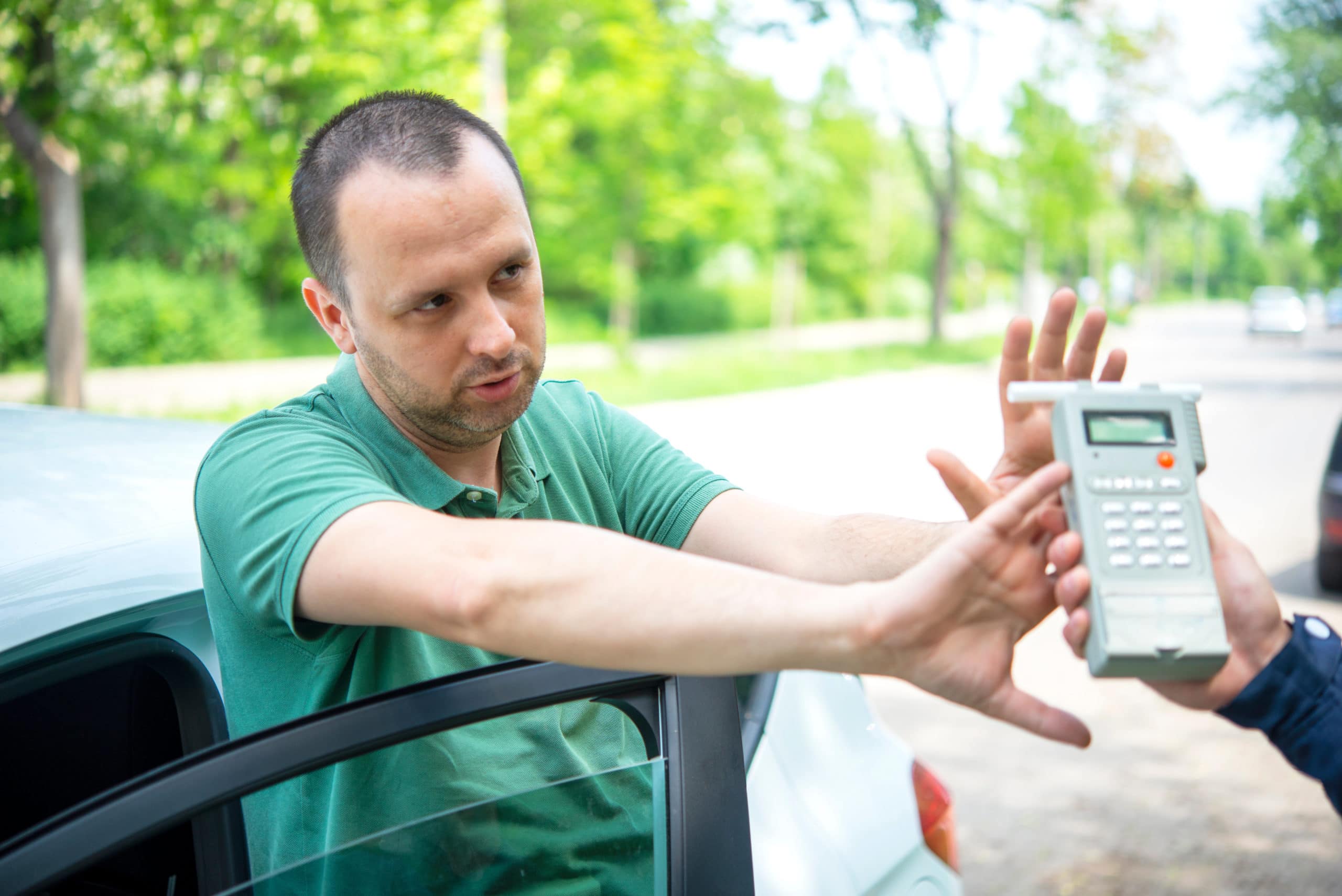
Here’s how it works: if you are arrested under suspicion of a DWI, the officer must issue you what is called implied consent advisement. He or she must tell you your rights and the potential consequences by informing you that:
- Refusing a test will result in the revocation of your license immediately for at least 12 months
- If your test results show that you have a blood alcohol content of 0.08 percent or higher, you will have your license revoked for a minimum of 30 days
- You have the right to seek an independent test upon release in addition to the one administered by the police
- You have the right to have a witness present during testing and to contact a lawyer, though it’s important to note that neither of these things can delay testing by more than 30 minutes
After these advisements are given, the officer will ask you to sign a form that you have understood what has been explained to you and that you are confirming your consent.
How North Carolina’s DWI Tests Work
There are several tests used to determine if you have any substances in your system that can cause impaired driving. Generally, you are given one of these tests:
Breath Test
This is often given roadside when you’ve been pulled over via a portable breath test machine. You may also hear this referred to as a breathalyzer test. If you fail the test and measure above the legal limit, then you will be arrested. After the arrest, you may be given a more precise test at the police station.
Blood Test
A law enforcement officer can request that you take a blood alcohol test rather than or in addition to a breath test. If you refuse the test, they can get a search warrant to get the blood test done. And if you’re ultimately convicted of a DWI based on the results of this test, then you may be hit with the lab fee for testing if you refused.
What Can Happen If You Refuse Testing?
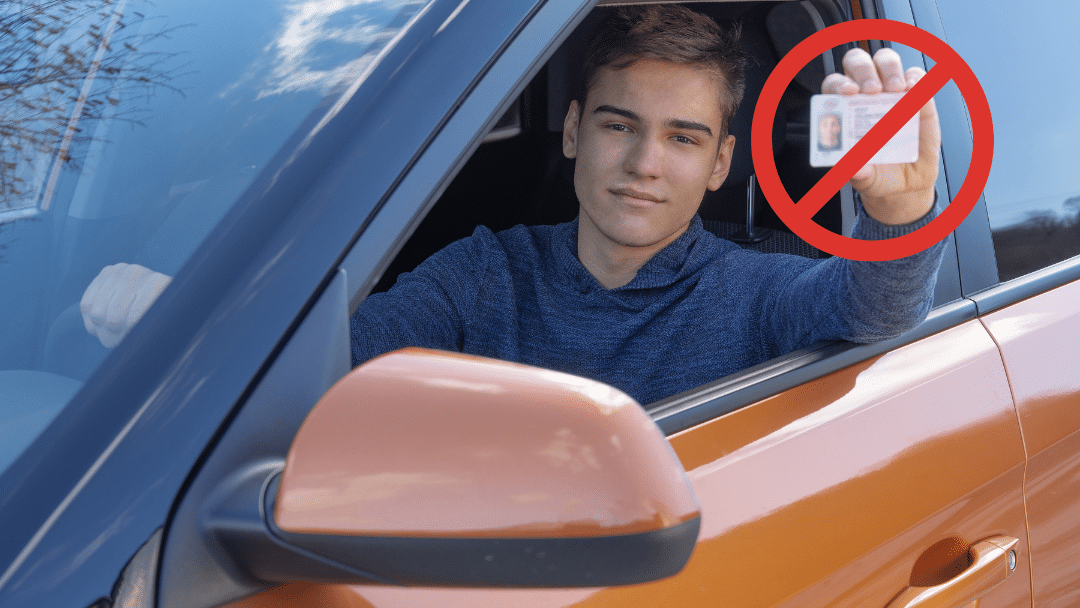
You will receive a separate implied consent charge beyond any DWI charges you are hit with. An implied consent charge can result in the immediate loss of your license for 30 days. After a hearing, you may ultimately lose your license for up to one year even if you’re found not guilty of a DWI in criminal court.
You can petition the court after six months for limited driving privileges. This allows you to drive between certain places such as school and work.
There may not be criminal penalties associated with refusing DWI testing in North Carolina, but it is important to remember that refusing a test is admissible as evidence in a DWI case. In other words, prosecutors can use the fact that you refused as evidence against you in addition to any other evidence.
Penalties for North Carolina DWI Convictions
Consequences for DWIs can include everything from fines and jail time to required alcohol treatment and losing your license. Plus, don’t overlook the impact of having to pay a high amount of bail to secure release. It can go as high as 100k-plus in some cases.
North Carolina has a rather complex system for sentencing in cases of impaired driving. There are five different levels of DWI offenses, and the penalties will depend on any aggravating or mitigating factors involved in the case.
Aggravating Factors
In DWI cases, aggravating factors can make the case against you more serious. For example, having a blood alcohol content of 0.15 is considered an aggravating factor, as is speeding at least 30 miles over the speed limit, reckless driving, passing by a school bus that is stopped, eluding police, or causing an accident.
Gross Aggravating Factors
Aggravating factors that are the most serious are referred to as gross aggravating factors. They include things such as causing a serious injury, operating a vehicle with a minor in the car while impaired, driving while on a revoked license for DWI, or having a DWI in the past seven years.
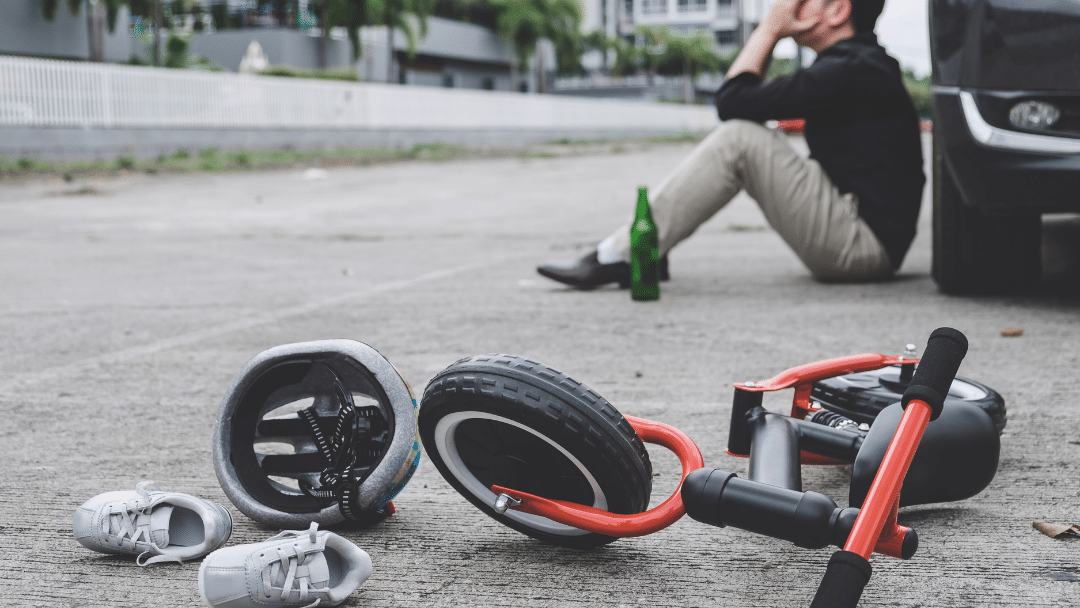
Mitigating Factors
This is evidence that you can present to bolster your own case in court. Mitigating factors include things such as impairment from a prescribed medication, a low blood alcohol content, or evidence that you were driving safely.
If you were under the influence, taking certain steps before trial such as attending sobriety meetings or getting treatment can improve your case in the eyes of the court.
Level One
A level one DWI will have two gross aggravating factors. It is punished by up to two years in jail and fines of $4,000.
You may get probation after you’ve spent a few days in jail, but only if you agree to submit to the monitoring of your sobriety and to complete a substance abuse assessment and any recommended treatment.
Aggravated Level One
If there were three or more gross aggravating factors involved in the case, you can be sentenced to up to 36 months in jail and be responsible for fines of as much as $10,000.
You may be granted probation, but only after spending 120 days in jail and completing a drug and alcohol assessment and treatment. You must also agree to alcohol and drug monitoring.
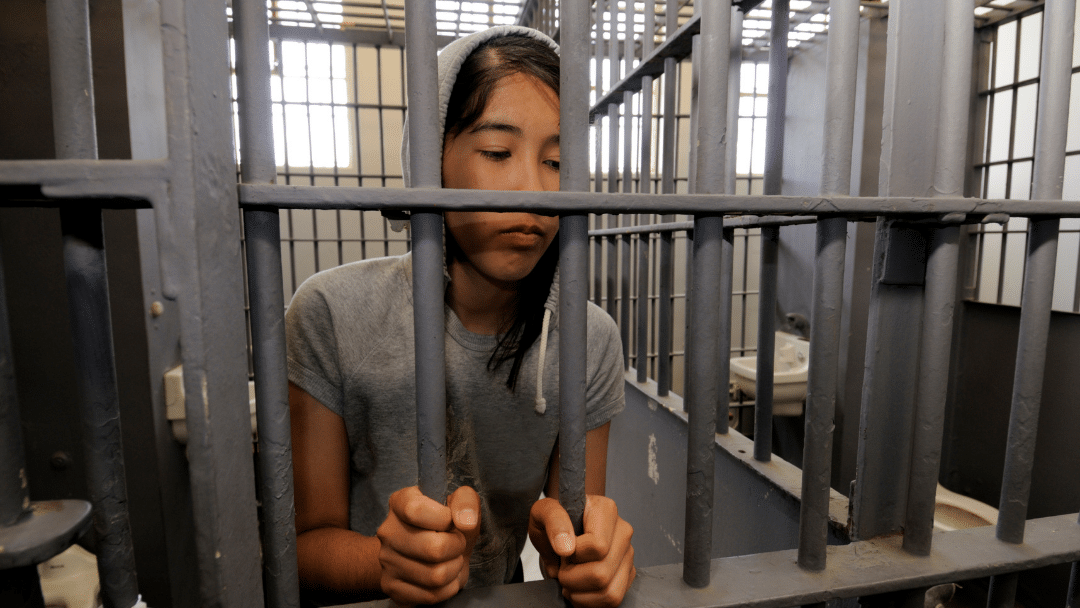
Level Two
In level two cases, one gross aggravating factor is present in the case. That can be punished by up to one year in jail and fines of $2,000.
You may be able to avoid jail by agreeing to three months of court-monitored sobriety as well as the completion of a drug and alcohol assessment. Any recommended treatment must also be completed, and if you had any prior DWIs in the last five years, you may also be ordered to complete community service hours.
Level Three
In level three, there are no gross aggravating factors present. In this case, as in the case of level four and five as well, the judge will look at the aggravating and mitigating factors present to make a determination.
For level three, the penalty is up to six months in jail and fines of $1,000.
Level Four
The penalties for level four DWI include up to 120 days in jail and fines of as much as $500.
Level Five
For level five, the penalties are generally up to 60 days in jail and fines of up to $200. You may be able to complete community service hours instead of spending time in jail.

Each DWI verdict will result in a substance abuse assessment and recommended treatment. Judges may also count time spent in inpatient treatment toward the fulfillment of jail time.
License Suspensions for DWIs in North Carolina
If you are found guilty of a DWI in the state, the North Carolina Division of Motor Vehicles will revoke your driver’s license. How long it is revoked depends on how many prior DWI convictions you have had. You will also be required to have an ignition interlock device installed in your car after the revocation period.
First Offense
For a first DWI offense, your license is revoked for up to one year. You will also be required to have an ignition interlock device installed for a period of one year.
First-time offenders may be eligible for limited driving privileges during the period of revocation. That means you can drive to school, church, or work only and you may have to use an ignition interlock device as well.
Second Offense
You will have your license revoked for four years following a second DWI offense. An ignition interlock device will also be placed on your car for a period of three years.
Third Offense
A third DWI offense will result in the revocation of your driver’s license permanently.
Can License Revocations End Early?
There are some circumstances where you can have your license reinstated early, but it requires you to submit to alcohol monitoring and will only reduce the revocation period, not eliminate it.
For example, if your license is revoked for four years, it can be reinstated after only two with the successful completion of monitored sobriety. You must also present the certificate of completion to a substance abuse course and treatment.
What About Underage Drivers?

Any driver can be convicted of a DWI in North Carolina if they’re operating a vehicle with certain amounts of a substance that impairs them in their system. However, drivers under age 21 are not legally allowed to have access to alcohol, which means that someone underage who is charged with a DWI will face a Class 2 misdemeanor for any amount of drugs or alcohol in their system.
This misdemeanor carries with it a penalty of up to two months in jail and a fine of $1,000. Their license will also be revoked until they are 21 years old and have completed the treatment requirements.
As you can see, DWIs in North Carolina are serious and can result in some major consequences. Moreover, it is often the case that law enforcement officers in our state are actively looking for individuals who may be drinking and driving.

Because of this, it is important to understand what your rights are when charged with a DWI as well as what penalties you may be facing so that you can make the best case for yourself in court. Remember, no matter what, you have the presumption of innocence on your side.





